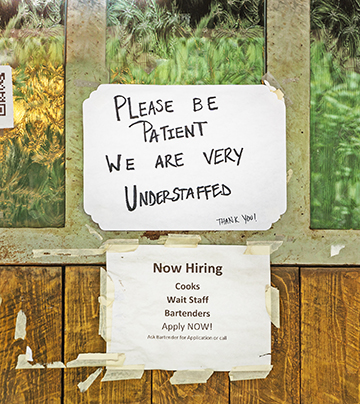Local Economic Policy Study
By enabling and empowering communities to pursue changes in local policies, we can change the face of economic development in America. Economic development policies of local, state and federal government agencies focus primarily on expansion through job growth. Success is measured solely on the number of new jobs created. This has resulted in proliferation of local, state and national policies that encourage and support big businesses that promise to create high numbers of jobs or will significantly expand hiring more employees.
Small, local business provides 85% of all job growth and accounts for 95% of all businesses in the nation. Yet economic policies do not support local businesses. In fact, many of the policies created for big businesses harm local businesses by putting roadblocks in their path. The support of big business has also led to the centralization of our economic power in a select few massive companies that compete unfairly with smaller businesses.
The COVID-19 pandemic and other factors creating unrest across our nation have deepened the fault lines in economic development policies and practices by continuing to fully support big business while thousands of smaller, local businesses struggle. This pain is not only felt by the business owners but by the 100 million people employed by local businesses.
Inclusion in entrepreneurship is a pathway to economic stability and building strong communities for people of color. Through policy changes, we can help address access to capital, open institutional vendor opportunities and clear roadblocks to success. It is imperative that we refocus economic development in every community in America to sustain and retain existing local businesses and remove barriers to entry for new ones. Creating policies focused on local businesses will build thriving local communities and create a thriving sustainable economic ecosystem. This, in turn, builds a strong and resilient nation.
In some communities, governmental policies existing that do benefit local business. This policy patchwork has helped some local business communities but to a limited extent because these efforts are so isolated. We believe that existing beneficial policies and programs provide a rich source of tested local policy to study and learn from.
Independent Business Alliances (IBAs) across the nation have organized to share knowledge and experience. While a good conduit for firsthand experience, not every community has an IBA and not every IBA has the capacity to move forward on its own. What we need is a comprehensive inventory of current policies, an evaluation of these policies, and a grassroots effort to enable and empower all willing communities to participate in local policy-making that benefits lcoal businesses. That is the mission this project will accomplish.
Three Phases of this Project:
Phase 1 – We begin with a study of local governments, organizations and businesses to identify existing local policies.
Phase 2 – Create a virtual toolbox for local leaders to make all of the tools and information accessible online. Local stakeholders will play a key role in this phase.
It is in this phase that we pay particular attention to communities of color. This is an opportunity to change the condition and direction of the economies in these communities and bring specific issues to the forefront.
Phase 3 – We will begin to document progress. The work continues with an annual survey to measure our impact across the nation.
WHO IS THIS FOR?
Local Business Communities
Category
POLICY & RESEARCH
PARTNER ORG
TBA
PROJECT OUTLINE
DOWNLOAD DOCUMENT








